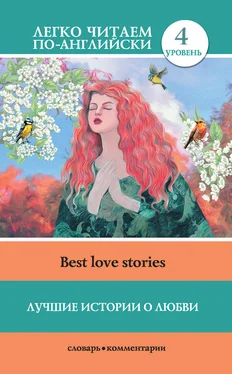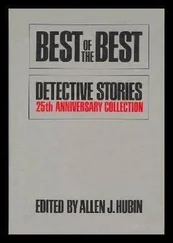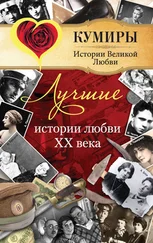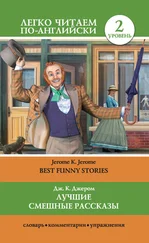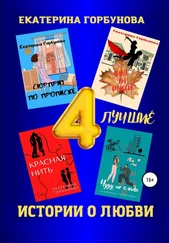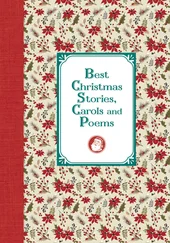From the corner he could only just see Megan, a long way ahead now. He ran a few steps, checked himself, then began walking. With each step nearer to her, further from the Hallidays, he walked more and more slowly. How did it change anything – this sight of her? How make the going to her, and that which must come of it, less ugly? [99]For there was no hiding it – since he had met the Hallidays he had become gradually sure that he would not marry Megan. It would only be a wild love-time, a troubled, remorseful, difficult time – and then – well, then he would get tired, just because she gave him everything, was so simple, and so trustful, so dewy. And dew – wears off! The little spot of faded colour, her tam-o’-shanter cap, wavered on far in front of him; she was looking up into every face, and at the house windows. Had any man ever such a cruel moment to go through? Whatever he did, he felt he would be a beast. And he uttered a groan which made a woman turn and stare. He saw Megan stop and lean against the sea-wall, looking at the sea; and he too stopped. Quite likely she had never seen the sea before, and even in her distress could not resist that sight. ‘Yes – she’s seen nothing,’ he thought; ‘everything’s before her. And just for a few weeks’ passion, I shall be cutting her life to ribbons. [100]I’d better go and hang myself rather than do it!’ And suddenly he seemed to see Stella’s calm eyes looking into his, the wave of fluffy hair on her forehead stirred by the wind. Ah! it would be madness, would mean giving up all that he respected, and his own self-respect. He turned and walked quickly back towards the station. But memory of that poor, bewildered little figure, those anxious eyes searching the passers-by, struck him too hard again, and once more he turned towards the sea.
The cap was no longer visible; that little spot of colour had vanished in the stream of the noon promenaders. And impelled by the passion of longing, the dearth which comes on one when life seems to be whirling something out of reach, he hurried forward. She was nowhere to be seen; for half an hour he looked for her; then on the beach threw himself face downward in the sand. To find her again he knew he had only to go to the station and wait till she returned from her fruitless quest, to take her train home; or to take train himself and go back to the farm, so that she found him there when she returned. But he lay inert in the sand, among the indifferent groups of children with their spades and buckets. Pity at her little figure wandering, seeking, was almost merged in the spring-running of his blood; for it was all wild feeling now – the chivalrous part, what there had been of it, was gone. He wanted her again, wanted her kisses, her soft, little body, all her quick, warm, pagan emotion; wanted the wonderful feeling of that night under the moonlit apple boughs; wanted it all with a horrible intensity, as the faun wants the nymph. The quick chatter of the little bright trout-stream, the rocks of the old “wild men”; the calling of the cuckoos, the hooting of the owls; and the red moon peeping out of the velvet dark at the living whiteness of the blossom; and her face just out of reach at the window, lost in its love-look; and her heart against his, her lips answering his, under the apple tree – all this besieged him. Yet he lay inert. What was it which struggled against pity and this feverish longing, and kept him there paralysed in the warm sand? Three flaxen heads – a fair face with friendly blue-grey eyes, a slim hand pressing his, a quick voice speaking his name – “So you do believe in being good?” Yes, and a sort of atmosphere as of some old English garden, with pinks, and cornflowers, and roses, and scents of lavender and fair, untouched, almost holy – all that he had been brought up to feel was clean and good. And suddenly he thought: ‘She might come along the front again and see me!’ and he got up and made his way to the rock at the far end of the beach. There, with the spray biting into his face, he could think more coolly. To go back to the farm and love Megan out in the woods, among the rocks, with everything around wild and fitting – that, he knew, was impossible. To transplant her to a great town, to keep, in some little flat or rooms, one who belonged so wholly to Nature – the poet in him shrank from it. His passion would be soon gone; in London, her very simplicity, her lack of all intellectual quality, would make her his secret plaything – nothing else. The longer he sat on the rock, with his feet dangling over a greenish pool from which the sea was ebbing, the more clearly he saw this; but it was as if her arms and all of her were slipping slowly, slowly down from him, into the pool, to be carried away out to sea; and her face looking up, her lost face with begging eyes, and dark, wet hair – possessed, haunted, tortured him! He got up at last and made his way down into a cove. Perhaps in the sea he could get back his control – lose this fever! And stripping off his clothes, he swam out. He wanted to tire himself so that nothing mattered and swam recklessly, fast and far; then suddenly, for no reason, felt afraid. Suppose he could not reach shore again – or he got cramp, like Halliday! He turned to swim in. The red cliffs looked a long way off. If he were drowned they would find his clothes. The Hallidays would know; but Megan perhaps never – they took no newspaper at the farm. And Phil Halliday’s words came back to him again: “A girl at Cambridge I might have – glad I haven’t got her on my mind!” And in that moment of unreasoning fear he vowed he would not have her on his mind. Then his fear left him; he swam in easily enough, dried himself in the sun, and put on his clothes. His heart felt sore, but no longer ached; his body cool and refreshed.
When one is as young as Ashurst, pity is not a violent emotion. And, back in the Hallidays’ sitting-room, he felt much like a man recovered from fever. Everything seemed new and clear; the tea, the buttered toast and jam tasted absurdly good; tobacco had never smelt so nice. And walking up and down the empty room, he stopped here and there to touch or look. He took up Stella’s work-basket, fingered the cotton reels and a brightly-coloured plait of sewing silks. [101]He sat down at the piano, playing tunes with one finger, thinking: ‘Tonight she’ll play; I shall watch her while she’s playing; it does me good to watch her.’ He took up the book, which still lay where she had placed it beside him, and tried to read. But Megan’s little, sad figure began to come back at once, and he got up and leaned in the window, listening to the thrushes in the gardens, gazing at the sea, dreamy and blue below the trees. A servant came in and cleared the tea away, and he still stood, breathing in the evening air, trying not to think. Then he saw the Hallidays coming through the gate, Stella a little in front of Phil and the children, with their baskets, and instinctively he drew back. His heart, too sore and disconcerted, shrank from this meeting, yet wanted its friendly solace – bore a grudge against this influence, yet longed for its cool innocence, and the pleasure of watching Stella’s face. From against the wall behind the piano he saw her come in and stand looking a little blank as though disappointed; then she saw him and smiled, a swift, brilliant smile which warmed yet irritated Ashurst.
“You never came after us, Frank.”
“No; I found I couldn’t.”
“Look! We picked such lovely late violets!” She held out a bunch. Ashurst put his nose to them, and there stirred within him vague longings, chilled at once by a vision of Megan’s anxious face lifted to the faces of the passers-by.
He said shortly: “How jolly!” and turned away. He went up to his room, and, avoiding the children, who were coming up the stairs, threw himself on his bed, and lay there with his arms crossed over his face. Now that he felt the die really cast, [102]and Megan given up, he hated himself, and almost hated the Hallidays and their atmosphere of healthy, happy English homes.
Читать дальше
Конец ознакомительного отрывка
Купить книгу
